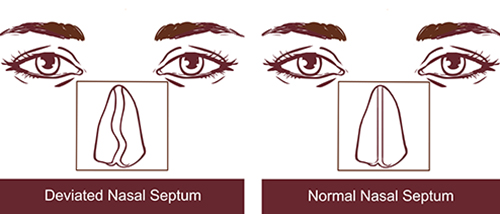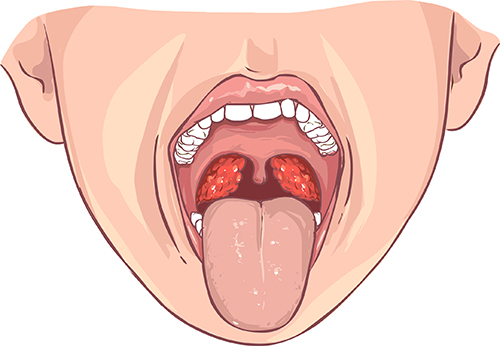
The study of otorhinolaryngology has amplified over the past few decades. This field of study deals with the ear, nose, and throat as well as related structures of head and neck. The word which in fact is lengthy is an actual abbreviation for Ear (Otology), Nose (Rhinology), & Throat (Laryngology).
Table of Contents
Let’s look at a detailed description of ENT specialization
Ears: The diagnosis and treatment of ear pain, discharge, or hearing disorders fall under the purview of otology.

Nose: The diagnosis and treatment of allergies and problems with a sense of smell, chronic sinusitis and airway obstruction due to a deviated septum fall under the purview of rhinology.

Throat: The diagnosis and treatment of laryngeal and upper esophageal diseases, as well as vocal difficulties and swallowing problems, fall under the purview of laryngology.

Head & Neck: The diagnosis and treatment of diseases in related structures of the head & neck such as infectious diseases, trauma, deformities, & cancers fall under the purview of ENT.

If we look at the specialized fields of medicine, otolaryngology is a great specialty, its even more profound with all the changes in medicine and new developments of high-precision surgical devices. Furthermore, many ENT specialists have professed that the most rewarding thing they do, is making a patient better and cure the symptoms of any condition or illness they may have.
Nature of the work of an ENT specialist!
Generally, ENT specialists or otorhinolaryngologists have reasonable hours, spend most of the time seeing patients in the outpatient clinics. ENT surgeons perform daycare procedures and treat conditions that affect the senses such as hearing, balance, smell or taste. Additionally, they treat patients with impacted voice, breathing and swallowing problems as well as those with head and neck tumors.
The major attraction is that they treat a lot of diseases & illness in a wide age group. ENT specialists treat people of all ages from newborn babies to the elderlies. Pediatric ENT is specialized filed under the scope of ENT medicine. They diagnose & treat more children than most other doctors, apart from pediatric surgeons.

A major proportion of ENT conditions do not require immediate attention. Also, with the advances in technology, the scientific and medical-surgical devices have made surgical care more precise. With modern equipment, an ENT specialist can perform the technologically advanced yet simple procedure using microscopes & endoscopes. They allow better imaging and provide accurate treatment/ diagnosis in the outpatient clinic.
How are ENT specialists different from a general physician?
ENT specialists or Otorhinolaryngologists go to 4 years of medical school. After medical school, they undergo 5 years of special training. Ultimately, they pass an exam to get the certification from the American Board of Otolaryngology.
Also, some of the ENT specialists, after the medical school and training, move on to 51 months of progressive education on the specialty, after which they qualify a specialized examination. Once they get the certification, they may begin the medical practice. They will then treat various medical problems, including airway difficulties, cancers of the head and neck, or chronic sinusitis. They also help with dizziness, structural problems in nose, and hearing loss, among other medical issues.
The training is extensive and covers a range of surgeries, including endoscopic sinus surgery, and tumor removal, plastic surgery of the face, myringotomy, and thyroid surgery, as well as the removal of the adenoids and tonsils.
8 common ENT illness or conditions
Airway problems: Breathing difficulties can be mild or severe, such as stridor or life-threatening airway obstructions
Chronic sinusitis: This condition involves chronic inflammation and swelling of the nasal passages, with a build-up of mucus and breathing difficulties through the nose
Deviated nasal septum: The nasal septum is the wall that divides the nasal cavity and a deviated septum is one that has drastically shifted away from the midline, typically resulting in breathing difficulties and chronic sinusitis

Hearing loss: Loss of hearing can occur in people of all ages and has a variety of possible causes such as aging, exposure to loud noise, viruses, heart conditions, stroke, or tumors might lead to hearing loss
Swallowing difficulty: People of any age can have difficulty moving food, liquid, and saliva from the mouth to the stomach
Tinnitus: Tinnitus is the perception of sound (ringing) when no external source of that sound is actually present and in severe cases, it may cause distress and negatively impact on the quality of life
Tonsil or adenoid infection: The tonsils and adenoids in the throat are part of the immune system and filters bacteria and viruses that enter the body through the nose and mouth, but they can be prone to recurrent infections
Voice disorders: Conditions including injury to the vocal cords, viruses, or cancer can result in voice disorders
Common procedures performed by ENT specialists
- Endoscopic sinus surgery
An otolaryngologist performs the treatment to cure infectious and inflammatory symptoms of chronic sinusitis or polyp growth. The surgeon insert an instrument called an endoscope into the nose, which provides better imaging of sinuses. They use a modern and technologically advanced procedure in order to remove material that is blocking the sinuses. A patient will be under local or general anesthesia during the procedure.
- Myringotomy and PE (pressure equalization) tube placement
To cure recurrent middle ear infections or hearing loss because of fluid in the ear, a tube is placed through eardrum to allow air into the middle ear. Pressure Equalization tubes are for short-term usage but they don’t inflict any harm in long-term. Myringotomy is a procedure in which a small incision is made in the eardrum to relieve pressure. This also helps drain pus from the middle ear.
- Septoplasty
A deviated septum surgery to correct the disfigured septum can take place under local or general anesthetic, involves separation of the lining of the nasal passage from underlying cartilage. This helps straighten the bent cartilage as necessary.
- Surgery for Snoring or Obstructive Sleep Apnea (OSA)
.jpg)
Otorhinolaryngologists have a number of surgical procedures for snoring and OSA. They can remove extra soft palate tissue to open up the nasal airway, such as with radiofrequency thermal ablation to reduce tissue bulk. They may make the palate stiffer with injections to reduce vibration and the risk of collapse.
- Thyroid Surgery
The thyroid resides below the larynx. Otorhinolaryngologists can remove all or part or all of the thyroid glands. The symptoms of thyroid cancer, lumps, obstruction of the windpipe or esophagus, or hyperthyroidism are visible, a patient may need surgery.
- Tonsillectomy or adenoidectomy

Removal of tonsils is Tonsillectomy, and Adenoidectomy is known as the removal of adenoids. They are necessary for treating recurrent infections or breathing disorders. The procedure occurs when a patient is under general anesthesia, but they don’t need to stay in the hospital for the night.
- Tympanoplasty
Tympanoplasty is used to close perforations, improve hearing, and cure the disease of the middle ear. This surgery also helps repair defects in the eardrum with a graft or address middle-ear bone disease.
What to do in case of symptoms!
People who are patients of any illness or disorder mentioned above, or are feeling symptoms of benign disorders, need to consult with a good ENT specialist. If the conditions are just developing or recurring periodically, this could be the symptom of a malignant infection. An expert ENT specialist can diagnose and help cure the conditions. The advanced surgical procedures provide instant relief from symptoms, offers faster healing and involves minor incisions. They also help with reassurance as they ensure long-lasting results.
Also Read: 9 Things You Should know Before Choosing an ENT Specialist







